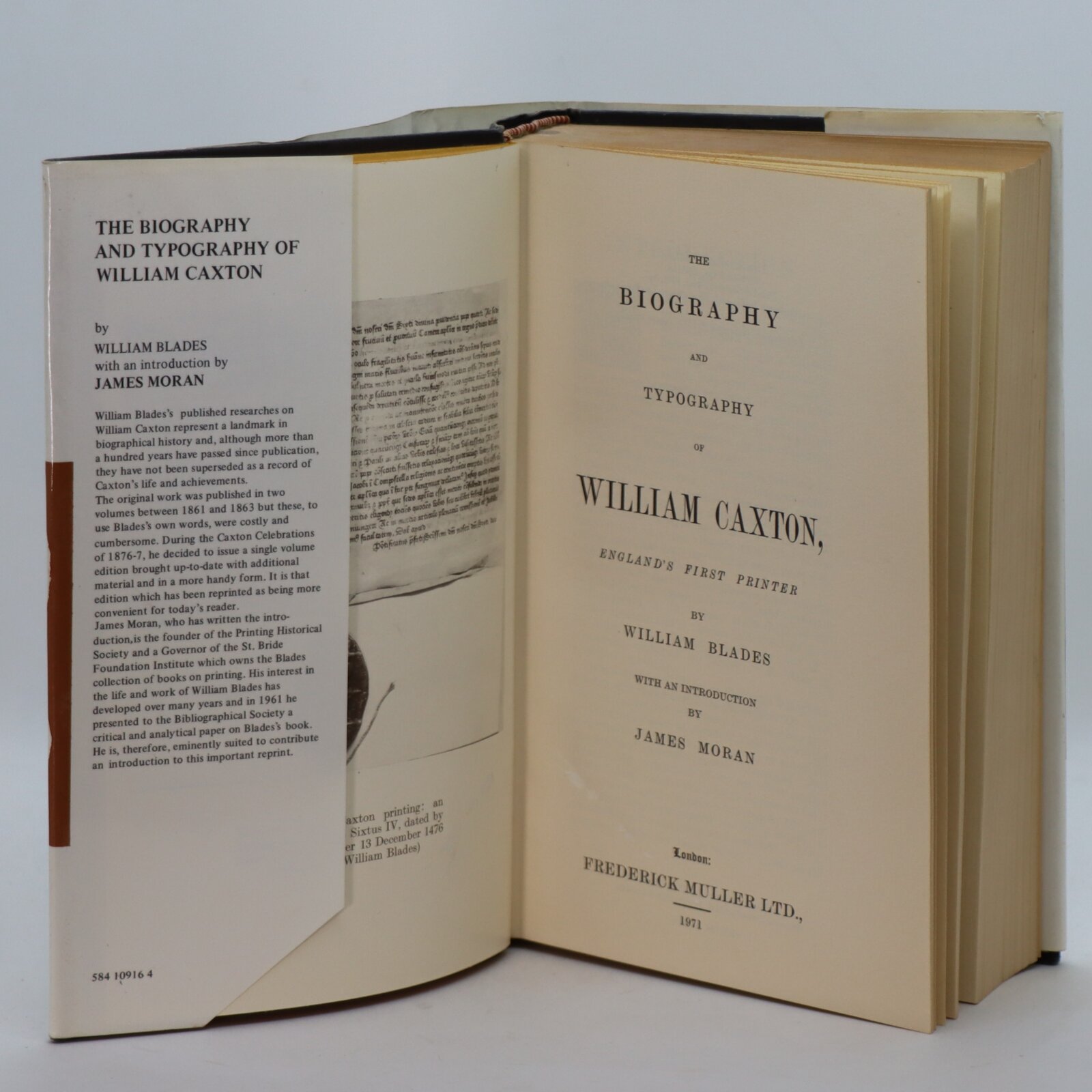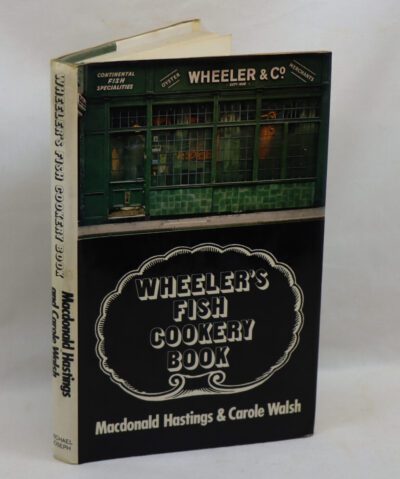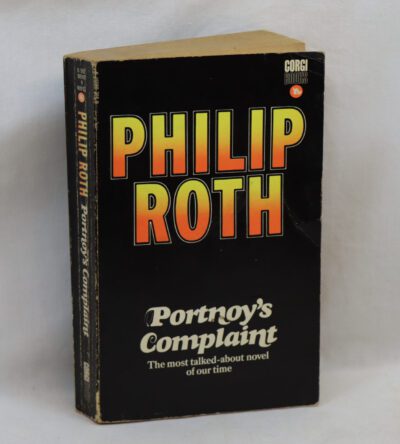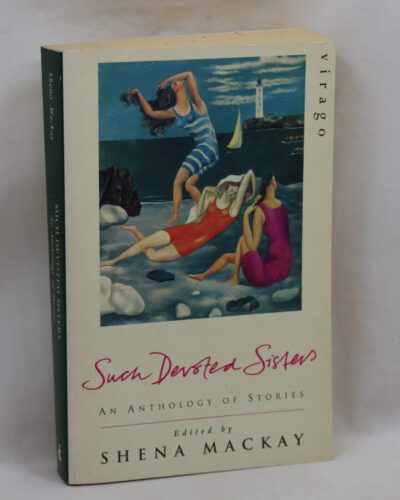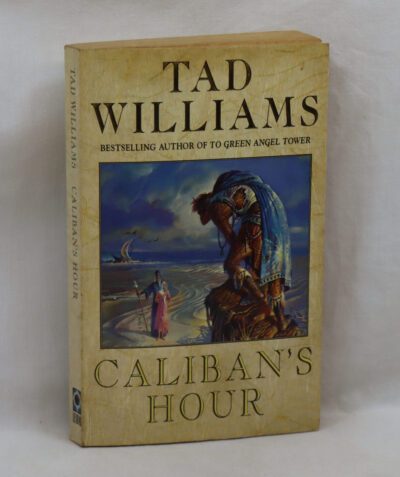The Biography and Typography of William Caxton.
By William Blades
ISBN: 9783111301327
Printed: 1971
Publisher: Frederick Muller. London
| Dimensions | 15 × 23 × 4 cm |
|---|---|
| Language |
Language: English
Size (cminches): 15 x 23 x 4
Condition: Fine (See explanation of ratings)
Item information
Description
In the original dustsheet. Black cloth binding with gilt title on the spine. Gilt Caxton design on the front board.
F.B.A. provides an in-depth photographic presentation of this item to stimulate your feel and touch. More traditional book descriptions are immediately available.
A very clean book with an introduction by James Moran
William Caxton (c. 1422 – c. 1491) was an English merchant, diplomat, and writer. He is thought to be the first person to introduce a printing press into England, in 1476, and as a printer was the first English retailer of printed books.
Neither his parentage nor date of birth is known for certain, but he may have been born between 1415 and 1424, perhaps in the Weald or wood land of Kent, perhaps in Hadlow or Tenterden. In 1438 he was apprenticed to Robert Large, a wealthy London silk mercer.
Shortly after Large’s death, Caxton moved to Bruges, Belgium, a wealthy cultured city, where he was settled by 1450. Successful in business, he became governor of the Company of Merchant Adventurers of London; on his business travels, he observed the new printing industry in Cologne, which led him to start a printing press in Bruges in collaboration with Colard Mansion. When Margaret of York, sister of Edward IV, married the Duke of Burgundy, they moved to Bruges and befriended Caxton. It was the Duchess who encouraged Caxton to complete his translation of the Recuyell of the Historyes of Troye, a collection of stories associated with Homer’s Iliad, which he did in 1471.
On his return to England, heavy demand for his translation prompted Caxton to set up a press at Westminster in 1476. Although the first book he is known to have produced was an edition of Chaucer’s The Canterbury Tales, he went on to publish chivalric romances, classical works, and English and Roman histories, and to edit many others. He was the first to translate Aesop’s Fables in 1484. Caxton was not an adequate translator, and under pressure to publish as much as possible as quickly as possible, he sometimes simply transferred French words into English; but because of the success of his translations, he is credited with helping to promote the Chancery English he used to the status of standard dialect throughout England.
In 2002, Caxton was named among the 100 Greatest Britons in a BBC poll.
Want to know more about this item?

Share this Page with a friend

